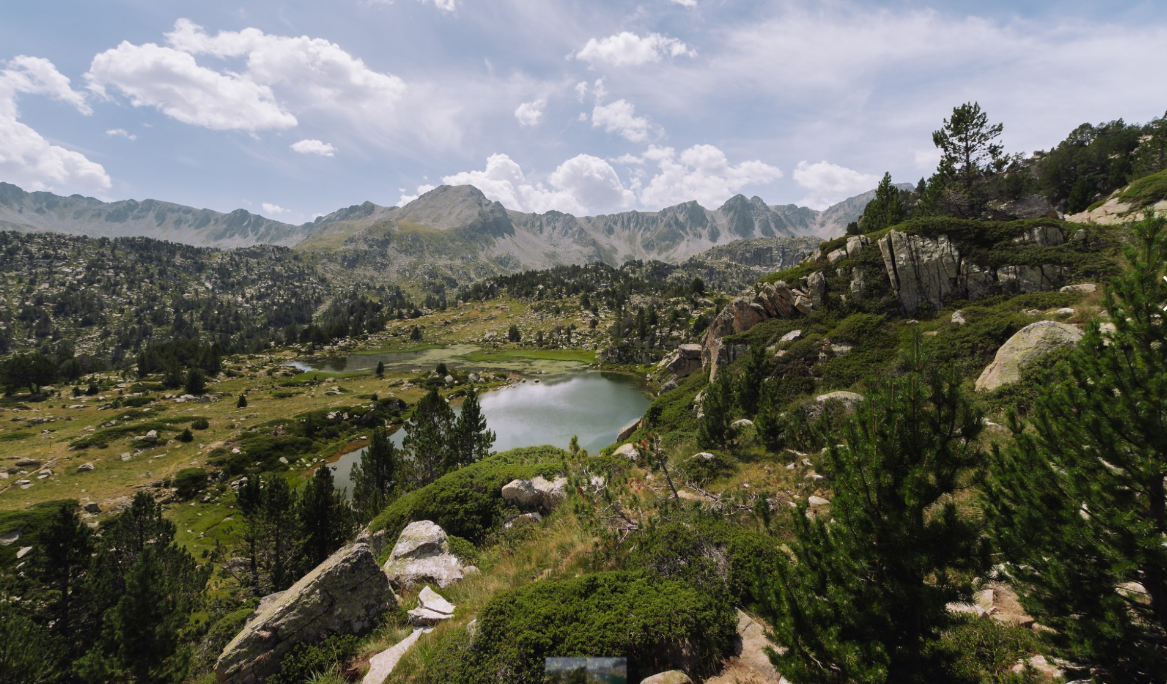What’s going on? It is winter and you have the feeling that it’s getting warmer every year. You read the news and it seems extreme events are on the rise: frequent fires, floods, severe droughts, etc. Climate change is not a problem of the future: we are already experiencing its effects. But how can we assess its impact on different regions of the world? Can we adapt to these changes? Can we slow it down or reduce its effects? These are some of the questions answered by the IPCC.
IPCC stands for the Intergovernmental Panel on Climate Change. The initiative was launched by the World Meteorological Organization (WMO) together with the United Nations Environment Programme (UNEP) in 1988. It aims to provide governments with scientific evidence on the effects of climate change and, therefore, ease the development of adaptation and mitigation policies. So as to gather the widest possible range of objective information, participation in the IPCC is open to all WMO and UN countries, and 195 of them are already part of the initiative.
It aims to provide governments with scientific evidence on the effects of climate change and, therefore, ease the development of adaptation and mitigation policies. So as to gather the widest possible range of objective information, participation in the IPCC is open to all WMO and UN countries, and 195 of them are already part of the initiative.
What are the differences between adaptation and mitigation, and why separate them? Adaptation encompasses the measures we need to adjust to climate change’s current and future effects. For example, implementing sustainable farming in the context of frequent droughts or better management of natural resources. On the other hand, mitigation refers to the implementation of actions to alleviate the effects of climate change, e.g. avoiding or reducing greenhouse gas emissions into the atmosphere.

The IPCC does not conduct its own research activity, but its work is based upon the assessment of thousands of scientific publications and papers on climate change. All this knowledge is synthesized by hundreds of volunteer scientists in regularly updated reports. This scientific community is made up of experts in various fields, ranging from science to socio-economics.
IPCC reports are linked to science diplomacy work. That is, they influence foreign policies and international agreements. For example, the fifth report provided scientific evidence on anthropogenic climate change and it led to the 2015 Paris Agreement.
Five reports so far
Since 88, the IPCC has already produced five reports. It is now working on the publication of the sixth, which is divided into three parts. The first was published in August 2021 and covers the physical basis of climate change. The second focuses on the impact of climate change, adaptation and vulnerability, and was disclosed on 28 February. The third part will be released in a few months and will summarize climate change mitigation.

The IPCC has also published three special documents at the same time as the sixth assessment cycle. In 2018, they published one warning about the impacts of global warming, which is 1.5°C above pre-industrial levels. In 2019, they published another special report addressing issues such as land degradation, food security and the flux of greenhouse gases into terrestrial ecosystems. Recently, in 2020, they released another one on the effects of climate change on the ocean and the cryosphere, the part of the earth’s crust characterized by the presence of frozen water.
What conclusions did the @IPCC_CH draw for the 1st part of the 6th #climatereport? Did it go over the same topics as the imminent 2nd one?🕗🌍 Let's go back to the beginning and clear things up!👇 pic.twitter.com/j71hFL4E0o
— CREAF (@CREAF_ecologia) February 24, 2022
Sixth assessment cycle, what are the findings?
The first part combined the most recent physical evidence on the climate crisis, including, among others, paleoclimate studies, observations and global and regional climate simulations. The result? It shows that climate change is widespread, rapid and it is intensifying due to human activity.
As for the results on the second part, it alerts that if greenhouse gas emissions are not reduced in the coming decades and the level of warming established in the Paris Agreement (1.5 ºC) is temporarily exceeded, there will be severe consequences, some of which will be irreversible. The Mediterranean basin is one of the regions that will likely suffer the most significant consequences, including severe droughts and rising sea levels.
Two hundred seventy scientists from 67 different countries have prepared this new edition. It includes 18 chapters addressing impacts, vulnerabilities and adaptation to climate change in various domains, ecosystems and continents. Chapters include the analysis of terrestrial and freshwater ecosystems; oceanic and coastal ecosystems; cities and infrastructure; poverty and sustainable development; risk management, etc.
The report also links biodiversity loss to climate change, thanks in part to Jofre Carnicer, IPCC author, CREAF researcher and professor at the University of Barcelona-IRBIO. In particular, in his most recent studies, the author warns that predictions of the impacts of climate change on biodiversity are not reliable if microclimates or climatic refugees are not taken into account.







